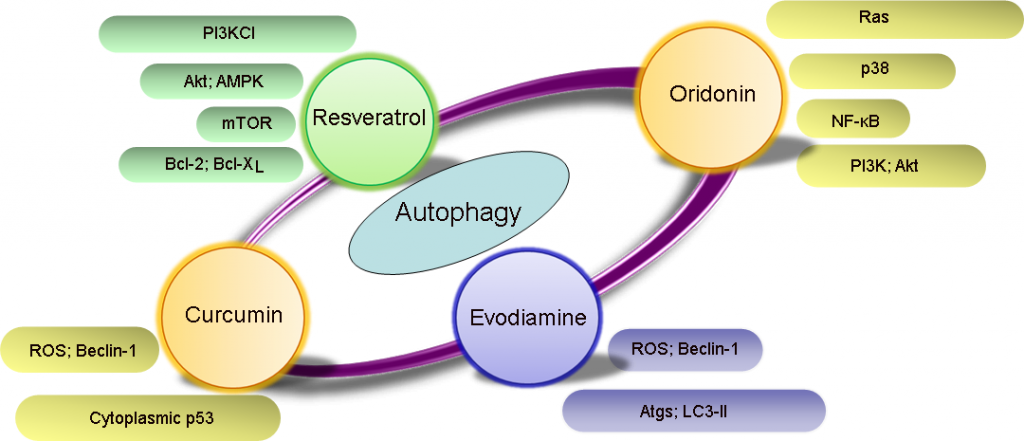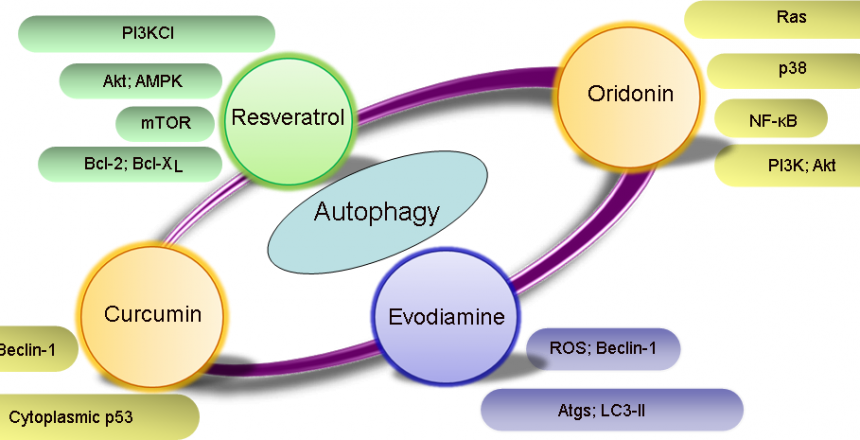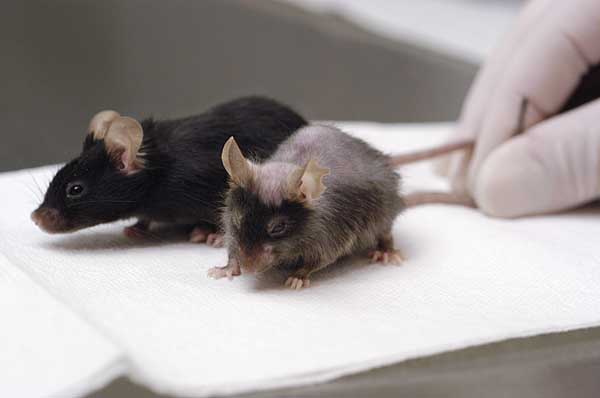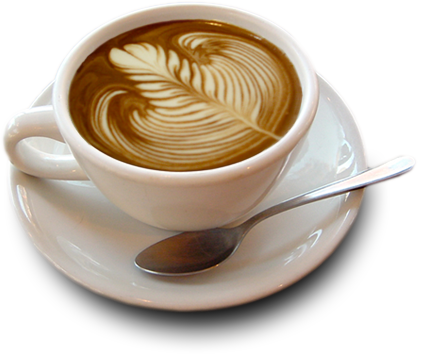
Calorie restriction and its twin, intermittent fasting, are the most robust life extension interventions known, extending life in lab animals and primates, sometimes by 50% or so. Intermittent fasting is generally the way to go for most people, as fasting from time to time is a lot easier than permanent calorie restriction. I do intermittent fasting (IF) at least a couple times a week now, for instance, but would find calorie restriction difficult. Calorie restriction can also result in lowered immune function and even brittle bones (osteopenia), and IF does not have these disadvantages. In fact, as far as I can tell, intermittent fasting is all upside.
Intermittent Fasting and Autophagy
One of the ways, probably the main way, that IF promotes increased lifespan is through the promotion of autophagy. (You regular readers out there know this already, I’m sure.) It appears that the longer one fasts, the greater the activation of autophagy.
What I’m looking for is a way to boost the health effects of my fasting, mainly through increased autophagy beyond what fasting promotes. The best way to do this is through various chemical inducers and enhancers of autophagy.
Autophagy enhancers boost the health effects of intermittent fasting
A few of the heavyweights in the world of autophagy and aging research have put together a nice compendium of chemical autophagy inducers: Caloric restriction mimetics: natural/physiological/ pharmacological autophagy inducers. They work by various, diverse means. Let’s look at their list.
Hydroxycitrate
Recently discussed on this blog, hydroxycitrate is an OTC weight-loss aid, and also part of a cancer therapeutic combination that smashes cancer cells and tumors in vitro and in mice. The linked review states that hydroxycitrate “causes… massive autophagy in all studied organs in mice.” Massive. Just what we’re looking for.
I’ve begun taking 300 mg of hydroxycitrate on my fast days, once in the early morning and then once in early afternoon. So essentially I’m boosting my fasting with this. Hydroxycitrate appears to have a relatively short half-life; I’ve been unable to find a number, but the weight-loss dose recommendation is three times daily, so I’m assuming short half-life.
Nicotinamide
Again, on this blog we recently discussed nicotinamide, a version of vitamin B3. (I’m not using the editorial “we”, it’s that I always think of my readers as part of the discussion.) From the review: “Nicotinamide is another potential SIRT1 activator that is sold over the counter in the US and that induces autophagy in rodents.” Nicotinamide at physiological doses looks like it may prevent Alzheimer’s, and that is related to its ability to promote autophagy.
I’m also using nicotinamide on fast days at one dose of 500 mg.
Resveratrol
“… resveratrol exemplifies a widely used over-the-counter drug that can stimulate the deacetylase activity of SIRT1, thereby causing general protein deacetylation and autophagy.” (More on resveratrol on this site.)
I take this at about 150 mg nearly daily, but avoid it around workouts, as it inhibits mTOR, the engine of muscle growth.
Curcumin
Mentioned in passing in the review, and we’ve mentioned curcumin before too. I’m currently taking this not on fasting days, as it seems that it’s better absorbed with a fatty meal. Three times a week as an adjunct anti-cancer, anti-inflammatory, and autophagy booster.
EGCG
Epigallocatechin gallate, from green tea. Not currently taking this as a supplement, though I do drink green tea occasionally. Probably would require supplement level doses to see an effect. Review states, “…epigallocatechin-3-gallate (EGCG, one of the major active compounds contained in green tea) can inhibit a range of acetyltransferases including EP300.”
The authors make no mention of lithium, but it is an autophagy inducer and lifespan extender.
From the review:
What could be the therapeutic indications for the use of such CRMs [calorie restriction mimetics]? CR or intermittent fasting are known for their wide life-span-extending and health-improving effects that can be measured in an objective fashion in multiple model organisms including rodents and primates. Beyond their capacity to reduce aging and aging-associated pathologies (such as neurodegeneration, type-2 diabetes, and cancer), fasting also has an important preconditioning effect, protecting different organs from ischemic insult. This applies to the heart, brain, liver, and kidney. There is emerging evidence that autophagy is involved in starvation-mediated organ protection. Moreover, fasting can reduce the subjective and objective toxicity of cytotoxic anticancer chemotherapies, both in humans and in mouse models, at the same time that it improves treatment outcome in mice. It is tempting to speculate that CRMs could be used for the same therapeutic indications in which fasting has proven to be useful. In accord with this idea, several CRMs can increase the health span and life span of rodents (as demonstrated for EGCG, spermidine and resveratrol), reducing the advancement of neurodegenerative diseases (as shown for spermidine, nicotinamide and resveratrol), likely through their capacity to induce autophagy. Moreover, several CRMs (including EGCG and resveratrol) have potent preconditioning effects in ischemia, which, at least on theoretical grounds, might be due to the induction of cytoprotective autophagy. [all my emphases]
We need to learn more about autophagy enhancers, but I think that using them to boost the effects of intermittent fasting is the best way to use them now. Most have fairly short half-lives, so you need to take them when you are fasting to get the boost, at least that’s my interpretation of the data. I also need to do some more work on dosing, comparing in vitro and animal levels with a human dose. Right now I’m taking relatively minimal doses.














53 Comments
Are you defining intermittent fasting as alternate-day fasting? Basically, not eating for a 24-hour period every other day? The last time I looked into IF, it was trendy to limit food intake to an 8-hour window every single day (fasting for 16 hours every 24 hour period).
So now IF is really ADF as you practice it? If autophagy benefits primarily accrue from a 24-hour fast, then I’m out of luck. That’s not my kind of lifestyle.
No, not defining IF as alternate-day, but as any period longer than you would normally go without food. Mine are usually from 16 to 20 hours in length and I’ve never done longer or alternate day.
Ok so how do you fit your IF around workouts? I have been fasting from 9pm to 1-2pm every day, but I like to hit the weights Sat/Sun and Wed at the moment. I figured that the most important time to skip the fast would be the next morning after a weights session to allow protein synthesis to continue the longest, while keeping fasted the morning of the workout to maximise days fasting during the week?
So I’ll workout fasted Saturday morning, with lunch and Whey as the post workout, then Sun morning I’ll have a whey shake and workout again, with lunch as the post workout. When I workout mid week (sometimes twice) I’ll often do it in the evening between lunch and dinner, with a morning fast again. So I’m really only having a morning ‘feed’ (protein shake) Sunday, and sometimes pre-workout Saturday.
Thoughts?
That all sounds good and similar to what I do, only I only workout once every 3 days, and fast for any length the same, every 3 days. I almost never workout fasted anymore though.
I have been IFing for several years and lifting in the same span. For me, I fast till about noon and eat my “breakfast”, workout an hour later with a protein shake, eat a PWO meal an hour after that, and then a snack between that and dinner with the family no later than 5pm or so.
Some people claim they can train fasted by using BCAA’s before/during/after (Martin Berkhan for instance). I’ve tried it, and the first few weeks are fine but after awhile my workouts start to feel sluggish. Maybe it’s just me or my nutrition isn’t up to snuff.
I have been doing IF for about three-quarters of a year. I started aiming for 16 hours and now consistently am doing 20+ hours a day. It is no longer a challenge, though I fell off the wagon this Easter.
On the plus side, migraines have been eliminated. There could be confounding factors such as the supplements, some suggested in your book.
Arthritis has not gotten better and I still wake up with the usual soreness from the left hip down.
I don’t work out, but have a lot of outdoor work.
Interesting, Joseph. Has your arthritis had a diagnosis, like increased rheumatoid factor? From what I understand, fasting does a lot of good for arthritis.
my mother had arthritic symptoms, and I got these when I moved back to her city. I returned to drinking my distiller water and got her to do the same. Within 4 days her painful joints were gone. A year later when she went 3 weeks with the normal city water, her symptoms returned, and went away again returning to distiller. Now I add some drops of minerals to the water to the large bottles prior to drinking. Try a N=1 experiment for 10 days and see if this works.
We live out in the country and have a well that is deep and always cold. I have had the water tested. Distilled water comes in plastic so I am reticent to try that.
Try coconut oil by both, 15 minute oil pulling and 1-2 Tbsp daily for artritis. https://www.google.com/search?q=oil+pulling+for+arthritis&oq=oil+pulling+for+ar&aqs=chrome.1.69i57j0l3.7883j0j8&client=tablet-android-samsung&sourceid=chrome-mobile&ie=UTF-8
My regular doc said that was what it was several years ago. It is mainly up in the shoulders. No diagnosis from a specialist.
I keep bees and some of my neighbors sting themselves to treat for arthritis. I might ask them to try it on me this summer for the hormesis.
Is fasting a safe protocol to engage in during pregnancy and breastfeeding? It’s really difficult to find information about this.
Good question, Marissa.Fasting should not be done during pregnancy or breastfeeding.
Thank you, Mr. Mangan.
Interesting that nicotinamide is an autophagy booster. It also has a history of research as an anti-arthritic (especially together with NAC) and an anxiolytic (it boosts sensitivity to GABA). And it’s probably the most anti-inflammatory supplement of all for a fibrotic liver, based on animal studies – when I took nicotinamide when I had Hep C (500mg 3x daily) my liver enzymes went down, not up.
Thanks, George. The anxiolytic thing is interesting. Anxiety is a symptom of hangovers; nicotinamide as a cure for hangovers?
Am I undermining my IF by putting a tablespoon if grass fed butter and a tablespoon of MCT oil in my morning coffee? Just started reading the new book…
I don’t know that you are undermining it. Small amounts of fat will not increase insulin or mTOR, so in my book they don’t abolish autophagy. Only carbs and protein will do that. I’d like to see the Jaminets’ reasoning on that one. According to a study I posted recently (somewhere), the benefits of fasting are due to lack of carbs, and other studies say lack of protein. In the first study, when people who were fasting for 3 days were infused with fat, the biomarkers of fasting they looked at were the same as if they had taken no food at all.
The Jaminets’ reasoning is not fully explained, but on Page 359 of their second book they write that MCT and coconut oil added to coffee increase autophagy.
Right, ketosis promotes autophagy. Therefore I don’t see why bulletproof coffee with butter and MCT oil would alter the health benefits of a fast. Butter is 100% fat. There may be some effect from large amounts on insulin signaling, but small/moderate amounts ought to promote autophagy.
Not according to the Jaminets. For the oil or cream anyway. Don’t know about the butter.
Hi P.D.!
What do you think about Yerba Mate tea as a possible booster and hunger alleviating drink? I live in a place where it is really common to drink this tea, but I don’t know if it would be a nice fit in a fasting day.
As far as I can see, it contains vitamins C and E, so it could be actually a problem, but it does have several other advantages… do you have an opinion about it?
Thanks for the awesome site! Just bought the supplements guide on Amazon! 😉
Best regards,
Ricardo
Hi Ricardo, yerba mate appears to have some of the same hormetic properties as coffee and tea, helping prevent obesity and cancer for instance. Since it has caffeine, it’s use as an appetite suppressor would work. Oh, and guess what: yerba mate increases lifespan in C. elegans and protects against toxicity of paraquat! https://www.mdpi.com/1660-4601/11/10/10091/htm
All in all, sounds like a fine, healthy drink that can be used in fasting, or any other time really.
Glad you like the site, and thanks for buying the book! Cheers!
Nice! Thanks for the quick reply! 😉
I will buy the one that is mixed with green tea for an optimal fasting helper, hehe!
Keep up the nice work!
Tea made from several species of Ilex (such as Yerba Mate) have anti-oxidants, some in high amounts. If one is avoiding anti-oxidants for a specific reason then avoiding teas made from hollies would be appropriate (at least Yerba Mate and Yaupon Holly.) Google: Ilex journal of economic botany 2009
Hi mangan, have you thought of taking your turmeric in the fasted state with some omega 3’s to increase autophagy? I imagine if you are having it with lunch the food is negating any boost to autophagy you might otherwise get?
Yes, that’s a good point. The others I all take in a fasted state, but I’ve been taking curcumin with a meal because it helps absorption, not really thinking about the autophagy.
Hi
What do you think of this for decreasing the starting time of autophagy in a 24 hour fast a week or in a intermitteng fasting 16:8?
1) Wake up a doing a HIIT.
2) Metformin and Resveratrol
3) Bulletproof coffee or some fat.
The idea behind this is to eliminate glycogen store with HIIT, then with Metformin activate AMPK, enhance insulin sensitivy, reduce circulating insulin, with resveratrol activate SIRT1 gene, and with Bulletproof enter into ketosis.
Hi Eduardo, sounds good, but – careful on the Bulletproof and the fat. You’ll probably enter ketosis well enough without it, and it’s a lot of calories.
PS: To elaborate, you don’t need extra fat to enter ketosis. What you need is for most of your glycogen to be depleted, which means no carbs. Or, if you’re in calorie deficit, you can still enter ketosis with some carbs. So concentrate more on eliminating carbs rather than adding fat (like Bulletproof). Unless you’re as lean as you want to be, then eat all the fat you want, so long as it’s good fat (olive oil, cream and butter, lard) and not bad fat (mainly vegetable oils and anything cooked in them).
What would you say is the best booster of the fat loss function of intermittent fasting?
My guess would be EGCG from green tea.
Thanks! Do you have any idea if the fluoride content in green tea also exists in green tea extract?
I have to admit I have no idea.
Hi Dennis,
Do you think it is a waste to take Berberine or the other autophagy boosters on days when you do not fast?
Thanks!
Prin
Hi Prin – No, I don’t. Berberine prevents cancer, activates AMPK, even if you take it while fed.
I’ve heard that autophagy can be induced not only by regular fasting but also by protein fasting. Would these boosters help on a protein fast?
Hi Andrew – what you said about protein fasting is only half correct, because you need to refrain from all carbohydrates to boost autophagy too. But otherwise, those substances will boost autophagy.
So I’m confused. Many sites ,including yours, claim that those boosters can promote more autophagy. But I also read that autoohagy during a fasted state can be canceled by almost anything, because it can trigger the body. So basically those boosters, only boost autophagy during a non fasted state? What do you think?
No, I don’t think that.
Have you tried fasting with coffee and tea, vs fasting with water only? Did you notice any difference?
I’ve always fasted with coffee or tea, never water alone.
How do you feel about taking a vitamin while fasting? They say B3 can boost Autophagy
David Sinclair indicated that high dose nicotinamide would block SIRTuin activation, maybe not ideal on fast days but on refeeding? Also found this
https://www.ncbi.nlm.nih.gov/pmc/articles/PMC5966847/
Nicotinamide is an inhibitor of SIRT1 in vitro, but can be a stimulator in cells